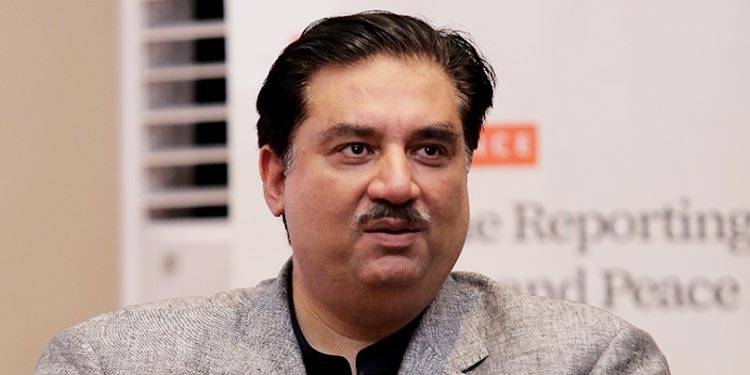
Minister for Power and Energy Khurram Dastgir has revealed that Pakistan is so close to securing a deal with the International Monetary Fund (IMF) as almost all conflicts have been sorted out between the two sides.
Pakistan is looking for a much-needed instalment of $1.1 billion from the IMF to avert default. Dastgir said the IMF has not demanded the government to cut its defence budget. "Instead, the IMF has asked the Energy Division to minimize its line losses," said the minister.
The IMF clearly stated that Pakistan will have to enhance its tax revenues and reduce losses.
On the other hand, former finance minister Miftah Ismail has predicted that the country’s economic condition will “remain tight” even if the government succeeds to avail the IMF bailout programme.
The IMF team has been in Islamabad since January 31 for talks with the government. Following the technical-level negotiations between Pakistan and the IMF's delegation, the two sides will start the policy-level negotiations today (Tuesday).
Pakistan finds itself in a tight spot, as it is desperate to revive the International Monetary Fund (IMF) programme, yet the government is reluctant to pass on the economic burden of implementing the Fund’s conditionalities to the masses.
Though some in the corridors of power might still believe that they can perform a balancing act, the IMF is in no mood to concede to Pakistan’s demands.
The ongoing talks are just a part of a long and strenuous process of financing the country’s needs to avert the looming crisis.
“Even if the best case scenario materialises, Pakistan will be back to square one by June,” stated economist Uzair Younas in a podcast. “The conclusion is clear, as soon as this programme ends, there is going to be another IMF programme,” added business and economy journalist, Khurram Husain.
Pakistan is looking for a much-needed instalment of $1.1 billion from the IMF to avert default. Dastgir said the IMF has not demanded the government to cut its defence budget. "Instead, the IMF has asked the Energy Division to minimize its line losses," said the minister.
The IMF clearly stated that Pakistan will have to enhance its tax revenues and reduce losses.
On the other hand, former finance minister Miftah Ismail has predicted that the country’s economic condition will “remain tight” even if the government succeeds to avail the IMF bailout programme.
The IMF team has been in Islamabad since January 31 for talks with the government. Following the technical-level negotiations between Pakistan and the IMF's delegation, the two sides will start the policy-level negotiations today (Tuesday).
Pakistan finds itself in a tight spot, as it is desperate to revive the International Monetary Fund (IMF) programme, yet the government is reluctant to pass on the economic burden of implementing the Fund’s conditionalities to the masses.
Though some in the corridors of power might still believe that they can perform a balancing act, the IMF is in no mood to concede to Pakistan’s demands.
The ongoing talks are just a part of a long and strenuous process of financing the country’s needs to avert the looming crisis.
“Even if the best case scenario materialises, Pakistan will be back to square one by June,” stated economist Uzair Younas in a podcast. “The conclusion is clear, as soon as this programme ends, there is going to be another IMF programme,” added business and economy journalist, Khurram Husain.

